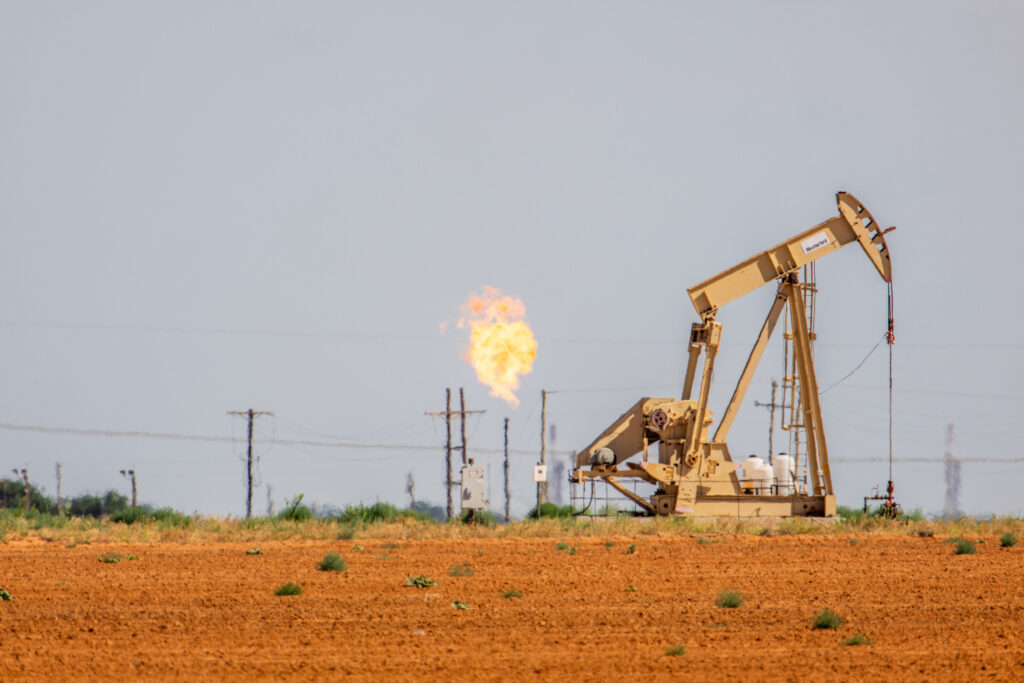Indirect emissions from a company’s financial investments can be tricky to measure, but a new study is quantifying the hidden carbon footprint in the oil and gas sector.
Using satellite technology to analyze oil fields, Clarity AI and Climate TRACE found that a sample portfolio containing the world’s top 20 oil and gas companies would have a 24 percent higher carbon footprint when accounting for investment-related emissions.
When it comes to measurement and disclosure, not all greenhouse gas emissions are created equal. For companies looking to assess their climate impact, some emissions are easier to track, such as the electricity they use or the gas fueling their trucks.
However, emissions not part of a company’s day-to-day operations still represent a significant part of the equation, said Patricia Pina, head of product research and innovation at Clarity AI. For the report, her team focused on the complex ownership structure of investments in the fossil fuel industry, particularly how companies operate oil and gas fields.
According to the Environmental Defense Fund, a majority of oil and gas projects are joint ventures where multiple companies invest in a project. Only one company needs to claim the emissions, allowing others to categorize it as a mere investment.
The report found that 90 percent of the world’s largest oil companies do not currently report emissions from these partnerships or joint investments as their own.
The climate impact of a company’s investments falls under Scope 3 emissions, which include the greenhouse gases released throughout a company’s entire value chain. Last year, corporations reported that their Scope 3 emissions were on average 26 times greater than their direct ones, a report by the Boston Consulting Group showed.
Fossil fuel companies have long distanced themselves from Scope 3 emissions, shifting the blame for climate impacts to end users. ExxonMobil, which declined to comment on the new study, said in its 2024 climate solutions report that suppliers should not be held accountable for their customers’ emissions, arguing that it would undermine incentives to take action.
“Blaming the producers of oil and gas for climate change is like blaming farmers for obesity,” Majid Jafar, CEO of Crescent Petroleum, told CNBC in an interview last year.
American Petroleum Institute spokesperson Scott Lauermann stated, “Our industry recognizes the importance of reducing GHG emissions across the economy—including from consumer use of energy. We are focused on meeting rising demand for affordable, reliable energy while advancing low-carbon solutions.” He did not address questions about the industry’s approach to indirect emissions.
Pina says the inconsistency in reporting these emissions prevents investors from accurately understanding and predicting their exposure to climate risk.
“I’m a strong believer that traditionally, we have relied way too much on the data that companies are reporting,” Pina added. “Companies don’t have the incentive to report everything, simply because they don’t have the means to, or haven’t been able to measure it.”
Indirect emissions are difficult to account for without regulatory guidelines, especially for companies with a complex supply chain, said Nathan de Arriba-Sellier, director of the Erasmus platform for sustainable value creation.
But regarding fossil fuels, de Arriba-Sellier said, investors shouldn’t need much detail about emissions to make informed decisions. “We know what the problems are in the economy, and we know how to solve them,” he added.
“Together, banks and insurers have a profound impact on the global economy.”
Oil and gas companies might be reluctant to publish their detailed emissions, he added. “But we need them to transition decisively to net zero and to invest massively in renewable energy,” he said.
Some other sectors present strong cases for accounting and disclosing investment emissions. One in particular is financial and insurance services, said Andrea Ranger, director of shareholder advocacy at Trillium Asset Management.
Last year, Ranger worked on a shareholder proposal filed by Green Century Funds asking insurance provider Markel Group Inc. to disclose emissions from its insurance and investment activities. The proposal was voted on at the company’s 2024 shareholder meeting and garnered 38 percent of the vote. Markel Group did not respond to requests for comment.
“Together, banks and insurers have a profound impact on the global economy,” Ranger said, and how they address or ignore climate impacts could have ripple effects. “If they’re not considering climate risk from the projects that they’re financing or insuring, that can create undue risk and negative impacts for the rest of us, whether it’s society at large or investors.”
CDP, a nonprofit running a global emissions disclosure system, estimates that 99.8 percent of emissions from the financial services sector are attributed to investment activities. The largest source of emissions comes from underwriting activities such as lending, investing, and insuring.
Insurers, in particular, should bring their hidden emissions into the light, Ranger added. “Greenhouse gas emissions drive climate change, and that’s directly antithetical to being able to cover people and institutions when the weather is constantly changing.”
Original Story at insideclimatenews.org
